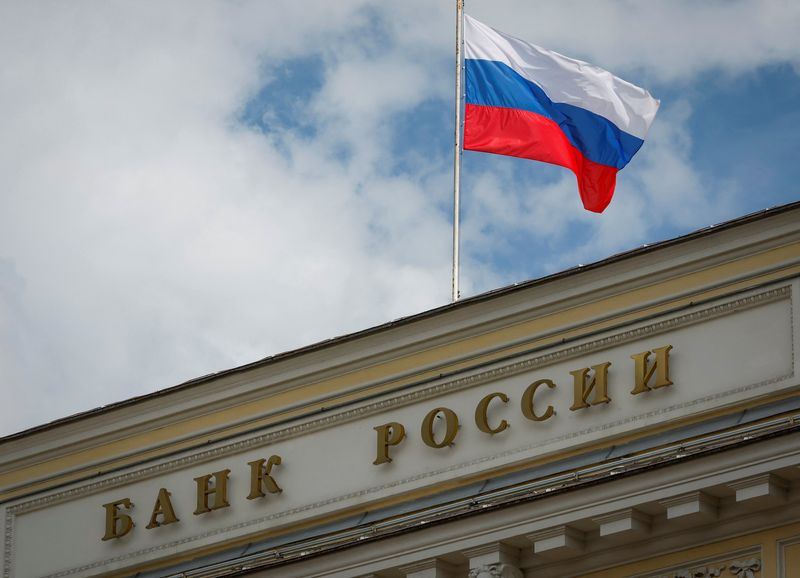By Elena Fabrichnaya
MOSCOW (Reuters) – Russia’s central bank is likely to keep its benchmark interest rate unchanged at 18% at its next board meeting on Friday, according to a majority of 27 analysts polled by Reuters, amid early signs of the economy cooling down.
Fifteen of the analysts expected no change, while seven predicted a hike to 19% and four predicted another aggressive 200 basis points (bps) hike to 20%. One analyst predicted a rise of 150 bps to 19.5%.
“Data released in August – GDP growth for July and inflation expectations – do not provide a clear signal, and the deflation in the last week appears to be a key argument in favour of maintaining the interest rate at 18%,” said Alfa Bank Chief Economist Natalia Orlova.
Analysts’ expectations have shifted since the last Reuters poll, conducted in late August and early September and published on Sept. 2. The consensus forecast in that survey was for a 100 bps rise to 19% at the Sept. 13 meeting.
The regulator raised its benchmark rate by 200 basis points to 18% in July, the highest level in more than two years, citing economic overheating and high inflation as the main reasons.
In a draft monetary policy document published last month, the central bank said it would need to maintain a tight monetary policy for a prolonged period to achieve a sustainable decrease in inflation, which is now running at over 9%.
However, the bank’s main monetary policy official, Deputy Governor Alexei Zabotkin, said on Aug. 29 that another hike in the key rate in September is not a certainty, as economic growth and lending are slowing down.
According to the latest set of macroeconomic forecasts, the government now expects gross domestic product (GDP) to increase by 3.9% in 2024, up from 2.8% in the forecast it issued in April.
The new figure suggests a slowdown from the growth rate of 4.6% in the first half of the year. The latest data also showed that consumer lending growth in July slowed to 1.4% from 2.0% in June.
Russia’s inflation is also seen slowing down from the current annual rate of 9.1% to 7.3% for the full year.
However, corporate lending growth, another major factor behind high inflation and economic overheating, accelerated to 2.3% in July from 1.5% in June despite high interest rates.
“The slowdown in GDP growth is not due to a decline in demand but rather to increased difficulties in production growth as the labor shortage is worsening,” said Gazprombank Chief Economist Pavel Biryukov, who expects a 100 bps rate hike to 19%
“Under these conditions, the Central Bank is most likely to decide on tightening its monetary policy,” Biryukov added.

